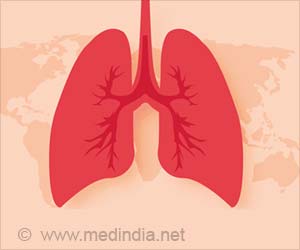
"The message to doctors is clear: Take the chance. It doesn't matter how old the patient is or what other chronic diseases the patient has. Administering the drug saves lives," said Paul D. Stein, professor of osteopathic medical specialties at the Michigan State University, the American Journal of Medicine reports.
Stein found in an earlier study that only about a third of unstable pulmonary embolism patients - those who are in shock or require a ventilator - received thrombolytic therapy, even though the drugs decreased the risk of dying in the hospital from 50 percent to 15 percent.
"Doctors are smart, so why are only a third of patients getting the drug?" asked Stein, who conducted the study, according to a Michigan statement.
Accordingly Stein and his deputy Fadi Matta, associate professor at Michigan, reviewed a national database of records from more than 1,000 hospitals.
Their findings suggest that concern over the bleeding tied to thrombolytic therapy may keep doctors from giving the drug to patients who could be at higher risk.
Advertisement
"Physicians apparently are afraid to give thrombolytic drugs to pulmonary embolism patients if they are elderly or have associated illnesses, and for good reason.
Advertisement
Source-IANS










